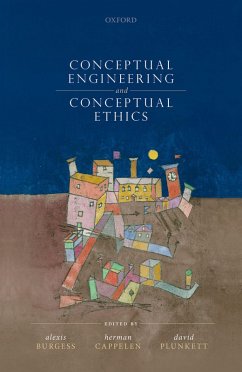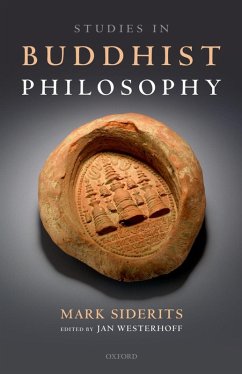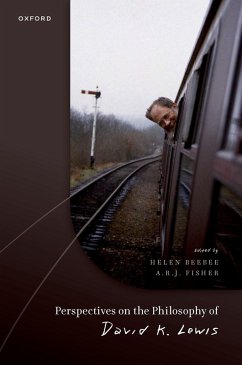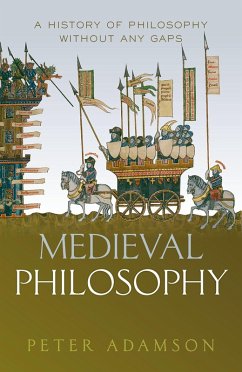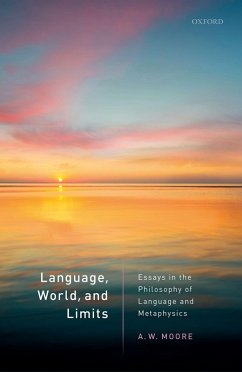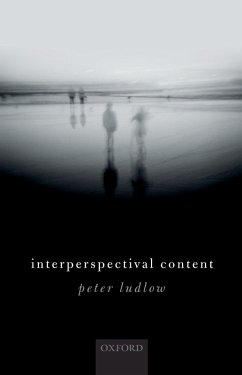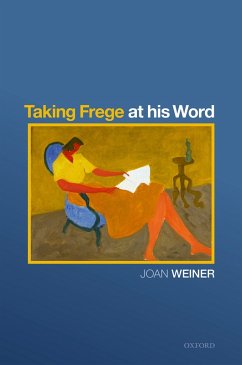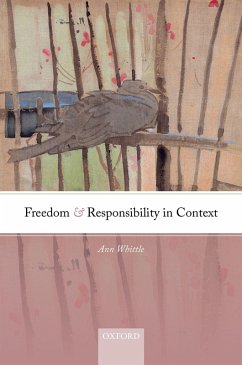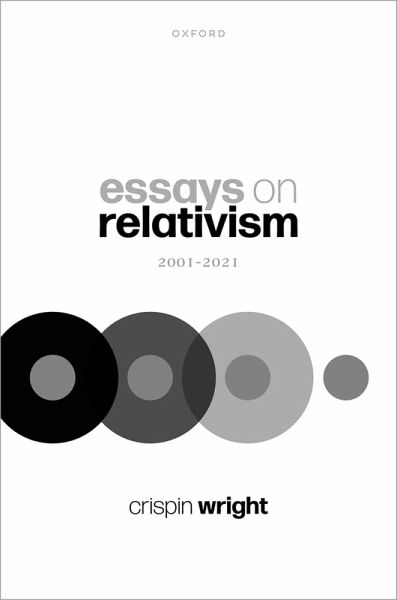
Essays on Relativism (eBook, ePUB)
2001-2021
Versandkostenfrei!
Sofort per Download lieferbar
41,95 €
inkl. MwSt.
Weitere Ausgaben:

PAYBACK Punkte
21 °P sammeln!
The classical Protagorean idea that the idea of absolute truth is an illusion - that there is only 'your truth' and 'my truth', or perhaps 'our truth' and 'their truth' - was until quite recently widely regarded as thoroughly and deservedly discredited. However there has recently been a sea change among professional philosophers in the analytical tradition, with a number of distinguished specialists arguing that, when suitably disciplined and refined, relative truth can play a central and illuminating role in the theory of the workings of a number of important regions of thought and discourse....
The classical Protagorean idea that the idea of absolute truth is an illusion - that there is only 'your truth' and 'my truth', or perhaps 'our truth' and 'their truth' - was until quite recently widely regarded as thoroughly and deservedly discredited. However there has recently been a sea change among professional philosophers in the analytical tradition, with a number of distinguished specialists arguing that, when suitably disciplined and refined, relative truth can play a central and illuminating role in the theory of the workings of a number of important regions of thought and discourse. Crispin Wright has been a leading protagonist in the resulting debates. The papers gathered here chart the development of his ideas over the last two decades on three interconnected sets of issues in which the renaissance of relative truth has intensified interest: · the general metaphysics of relativism and whether it has the resources to rebut the traditional objections to it. · the significance of the "standards-variability" phenomena that seem to afflict ascriptions of knowledge and claims featuring epistemic 'mights' and 'coulds'. · the challenge to find the best formulation of anti-realism about certain areas of our thought and discourse - taste, humour, or etiquette, perhaps, - in such a way as to make sense of the intuitive idea that disagreement about matters within these areas can be and often is "faultless". The overall tendency of the chapters is to call into question the claimed theoretical advantages of 'New Age' relativism. As so often in Philosophy, however, it is the journey rather than the destination from which we learn.
Dieser Download kann aus rechtlichen Gründen nur mit Rechnungsadresse in A, B, BG, CY, CZ, D, DK, EW, E, FIN, F, GR, HR, H, IRL, I, LT, L, LR, M, NL, PL, P, R, S, SLO, SK ausgeliefert werden.





